- Home
- B. V. Larson
Starfire Page 9
Starfire Read online
Page 9
There must have been a second vehicle, but it was long gone. Brandt knew these people. They were organized. He would never find his daughter before they managed to whisk her away onto a plane or a helicopter. If he stayed in the area too long to search for her, they would pick him up eventually—or kill him. He didn’t mind the idea of dying, but what would happen to Jenna after that? Imprisonment for life in Clark's dungeon? That was unacceptable.
Grimly, he clutched the SUV’s steering wheel as he drove. Now and then he had an outburst, hammering his fist on the dash or grabbing up wads of his own clothing and cursing.
Regaining control of himself, he forced his mind to think clearly. He had to, for Jenna’s sake. This time they must have sent more than three agents. One he hadn’t seen must have grabbed Jenna.
He felt sick. After he’d given them such a hard time in Europe, he should have expected more force. Hell, he was lucky they hadn’t sent a ten man team. Maybe they’d been uncertain he was in Brooklyn, or maybe they just hadn’t been able to pull together the assets they needed fast enough. Whatever the case, he’d managed to escape again—but not cleanly.
He’d known all along that Jenna was his weak point. Being forced to protect her endangered both of them. But the enemy had a weakness, too. They wanted to take them both alive. If they’d wanted Brandt and his daughter dead, he knew they’d have been cooling in a morgue long ago.
As the SUV carried him smoothly away from the scene, he tried not to speed too much. He’d have to ditch the vehicle and find another car before he hit the bridges.
After picking up new transport, he’d head north to cross the country on I80. The airlines would be faster, but they were out of the question. He’d have to slip away and hide among the tens of millions who traveled by car every day in the U. S., avoiding the net they must be drawing tighter even now.
As he drove, he looked over the items he’d lifted from the fallen agents. There were guns, IDs and two cellphones. He popped the batteries out of the cellphones to make sure they weren’t giving away his location. They might be useful later.
Looking at the faces on the IDs wasn’t easy. He steeled himself. Another man might have had sympathy for them but not Brandt. They should have known they couldn’t expect to take a man’s daughter from him and live—not if he could stop them.
Chapter 14
Aboard the International Space Station (ISS)
Starlight
Sergey was a little more than four hundred kilometers above the Indian Ocean, looking down. Outside a circular, lead-impregnated porthole, he could see a ship coming to dock with the ISS. It was a rare sight and never failed to intrigue those who’d spent a long time aboard the station.
The approaching spacecraft was a Russian Soyuz, an expendable rocket system that had reliably served since the nineteen sixties. After the Americans had ended their space shuttle program in 2011, the Soyuz was the primary means of reaching the ISS.
Sergey was a physician and a biochemist, working in space to study bone-density growth patterns. He was part of Mission 59, the currently active crew designation. The ISS had been built in 2000, and it had been in continuous operation ever since. It was a special source of pride for all Russian scientists that only they were able to keep the project going. The Americans had run out of gas in space, and while other countries had dabbled, only the Russians maintained a full-blown program. Russia’s Star City was still launching Soyuz rockets with regularity, and although others might scoff at their antiquated technologies, they could not argue with the tenacity of the Russian government’s support.
Outside, the portal jets of hot gas and plasma flared. The Soyuz was making its final approach.
“Why do you think it’s coming, Sergey?” asked the American at the window next to him. “There’s no change of schedule shown. There’s no reason for this visit out of the blue.”
Sergey turned toward the owner of the voice, a balding man with piercing eyes. Mark Swanson was one of the two Americans aboard. Technically, he was in command of this mission, but command was a vague term aboard the ISS. It did not mean that anyone was shouting orders at anyone else. Russians and Americans alternated command rank, and the title was for the most part, honorary.
“There’s been a change,” Sergey said. “I’m going home. This new man will replace me.”
Swanson nodded, still frowning. “I wasn’t informed.”
“Yes, I know. This is an internal matter.”
Swanson stared at him for a moment, then lifted his hands in a gesture of surrender. “I guess I understand. You’re being replaced. Well, I’m glad to have served with you.”
Sergey shook Swanson’s offered hand. The two men fell silent. Things had been tense between their governments over the last two years. There were constant rumors that the ISS itself might be shut down. What had always been an open and friendly relationship between the scientists aboard—that had changed.
The general unspoken rule between Americans and Russians had been to avoid bringing up the obvious. To sidestep the reality of a new Cold War between their nations was the easiest expedient, despite the fact that evidence was mounting every day suggesting international tensions were rising.
Swanson cleared his throat. “I have to say something,” he said quietly. “You—it’s been an honor serving up here with you, Sergey. I’m sorry that things on the ground are changing, muddying the relationship we have up here in clean, open space.”
Sergey looked at him, surprised. “Mark, you’re correct. It is a shame. But men like us don’t make these decisions.”
“Do you think the program will stop? That we’ll end two decades of cooperation in space? It seems like such a tragedy.”
Sergey thought for a moment. The Soyuz outside touched their ship. Clamps clanged into place and gasses hissed. The docking was perfect.
“The moment had to come,” he said. “It was preordained when your government ended its manned missions. Times change. Political winds shift. How could this arrangement continue forever?”
“Well,” Mark said, “we do fund much of your program by paying for taxi service up here. The relationship has been mutually beneficial.”
“Money isn’t everything,” Sergey said. “Our ships still fly. Yours do not.”
Both men fell back into an uncomfortable silence as the airlock finished its job, pumping air until the two chambers were equalized.
Mark was watching the vessel closely. “That’s an old model,” he said. “I didn’t think you guys had any more of these in storage.”
Sergey shrugged. He’d been given private orders to leave the ISS today. He didn’t feel like explaining anything to the American—and in any case, he didn’t know why his masters on the planet below had sent one of their oldest ships to pick him up.
The seal cranked open, and the hatch swung freely. A helmeted man with his visor shut glided weightlessly toward them. They could not see his face through the helmet. It was darkened as if to stop direct sunlight.
“Welcome aboard the ISS,” Mark said. “I’m Swanson, in command of Mission 59. Can you tell me your name?”
The figure redirected itself, gliding toward Swanson. Both the scientists lifted their eyebrows in surprise. There were longstanding protocols of greeting when coming aboard the ISS for the first time. This man seemed to be aware of none of them.
The stranger’s hand came up. There was something in it.
Mark Swanson misinterpreted the gesture. He thought the new arrival was reaching to shake his hand. He tried to clasp the glove that came toward him, but the hand slid past his grasp and pressed a metal object under his chin.
There was an odd, popping sound. Mark’s face registered surprise, and his eyes froze in that wide-open position.
Sergey reached for Mark, his face sagging in disbelief. Even when he saw the dark blood pumping from under the American’s jaw, he could not believe it.
“You killed him?” he demanded in a raspy whisper. “Why? He
would have done nothing. He was a good man.”
The dark visor finally opened. “Stop the cameras.”
“They’re already switched off. There have been no video transmissions to the ground for nearly an hour—as was ordered.”
Sergey’s heart was pounding. The flat stare of the man in the helmet did nothing to relieve his concerns. The man had the narrow eyes of a Siberian wolf. There was no mercy there. He faced a deadly predator, and he knew it.
“Good,” said the killer. “You’ve done well. Where are the others?”
“At the far end—in the living modules.”
The man worked his weapon. Sergey eyed it in fear. It looked like a staple gun.
“You brought a firearm aboard this ship?” Sergey asked. “That’s insane. The oxygen levels are high and the hull is thin. You’ll kill us all.”
This elicited a laugh from the killer. “Don’t worry, doctor. It’s very safe. There is no spark. The weapon fires a heavy slug into the brain—but the slug is designed not to exit the far side of the skull. The trick is that I have to put it under a man’s throat. The soft tissue there will allow penetration. Death is instantaneous and certain.”
“An executioner’s weapon? Designed specifically to kill in space?”
“A relic of the Cold War. It has become useful at last.”
Sergey watched him reload with growing apprehension. “You plan to kill the other American?”
“Yes.”
“But why? There’s no need.”
The killer looked down for a moment. “I did not know how you would react. I’m impressed so far. They told me that you would not shout, that you would not fight to save the others. I’m pleased to see you’re a patriot.”
Sergey licked his lips. “I accept your praise, but I ask again, as one patriot to another. Why must this be done?”
The assassin seemed to think it over, and he gripped a loop of vinyl strap that hung from the wall to steady himself.
“I think your request is a fair one,” he said. “I think that two men such as you and I, people willing to die or kill for our nation, we can bend a rule as long as the mission is completed.”
Sergey nodded, making a gesture indicating the other should proceed.
“This station houses our enemies,” the killer said. “It gives them eyes and instruments in the sky. It cannot be allowed to operate today.”
“Do you know why not?”
“No. I only know that today is the last day the ISS will function. It’s also imperative that the enemy does not learn what happened here. They must believe there was an accident.”
Sergey was finally beginning to understand. For some reason, certainty about his fate brought calm.
“Do we have a moment to talk?”
The killer checked a timer on his arm.
“Yes. What do you want to talk about?”
“Can I show you something? My life’s work?”
The killer eyed him but then nodded slowly. All the while Sergey led the man to the lower modules, where his bone-growth experiments were happily multiplying cells in structures impossible on Earth, he wondered if the man would just reach out and pop open his skull as he had Swanson’s.
But he didn’t. He followed politely into the module and listened for nine minutes as Sergey explained his experiments. The time passed quickly, as Sergey was excited, and he knew that his discoveries concerning the various striations and growth patterns would shortly be lost forever.
The old, decrepit Soyuz that had been fired off to rendezvous with the ISS was loaded with plastic explosives. The ship blossomed into silent brilliance as the tenth minute after docking began, eating up the oxygen inside the capsule and blasting the hull open. Hurled with terrific force, chunks of thick steel tore through the thinner hull of the ISS. It was as if shrapnel from a grenade ripped through tissue paper. A dozen burning holes appeared, revealing the glory of space and the blue jewel of Earth, which stretched in a gentle arc below.
Sergey and the killer died together in the lower modules, asphyxiating rapidly. Neither had bothered to close his helmet. There was no point. There could be no rescue.
Sergey’s dying thoughts were positive. At least one man had learned of his achievements in experimental bone growth.
Chapter 15
Barrow, Alaska
Day
On the north slope of Alaska exists a “beach town” that is among the northernmost communities in the world. The barren landscape is a place of extremes. Months of sunlight in summer, months of darkness in winter, polar bear tours, muddy roads and ice-covered seas. These were a few of the unusual facts of life in Barrow that made it stand out among all the places to live on the planet.
Dr. Yuki Tanaka hadn’t been aware of the town’s existence until she flew over the Brooks Range and down to the edge of the Arctic Ocean to land on what passed for the local airstrip. As a lifelong resident of the state of California, where beaches boasted white sands and colorful bathing suits, she found Barrow dismal and foreboding.
Each leg of her long journey northward had been an increasing trial. The planes had grown smaller, but conversely the number of special passengers had grown larger.
By the time she reached Alaska, they were from all over, but there were common themes. Most were military or government workers. They were people with clearances, scientific knowledge, and contracts that made them beholden to one U. S. Federal Department or another. The Department of Defense, Department of Energy, Department of the Interior—all were represented aboard the final turboprop that wavered and bucked over the mountains. They came down like a falling leaf on the far side, kicking up stones and mud in a rough landing. The airstrip stretched beside a town that looked as if it was waiting to die along the edge of a frozen sea.
There was no grass. There were no trees. There was only mud, and stones, and drifts of snow in patches. Digging into the frosty ground was impossible here without power tools most of the year.
“Barrow,” said a man sitting next to Yuki, looking out the tiny oval window at his side. He wore a parka that had been slopping over his armrests into what Yuki considered her territory with regularity throughout the flight from Anchorage. This was the first time that he’d spoken to her.
“You’ve got to love it or hate it, right?” he asked with a western accent.
“I’ve never been here before,” she said.
He eyed her with new curiosity. “Makes sense. I know almost every contractor that gets shipped up to this nowhere. You’re new. Where do you hail from?”
“Lawrence Livermore.”
“Ah, one of the big labs. There’s nothing like that up here. You’ll be lucky to get hot coffee.”
The man seemed to think this was extremely funny, and he laughed with abandon.
“Are you an Alaskan native?” she asked him cautiously.
“No ma’am,” he said, pushing his glasses higher on his protruding nose. “I like to see my bears behind the bars. And I like to wear skis when I head up to heavy snow. I’m from Idaho.”
“I see.”
“I’m Edwin,” he said, thrusting a paw at her.
She shook his big fingers with her hand and forced a smile. “Dr. Yuki Tanaka.”
“Good to meet you.”
“Did you mention bears, Edwin?”
“Sure did. The meanest in the world, if you ask me or anyone else in Barrow. They’ll chase you down as soon as look at you. No fear. No hesitation. Everything and everyone that moves around on the ice up here—that’s food in their eyes. That’s all they care about.”
Yuki shifted in her seat. The plane had rolled to a tiny terminal that looked like an honest-to-God Quonset hut from World War II. The tires spit gravel and the wind was up, keeping banners whipping hard overhead.
“You’re talking about polar bears, right?” she asked.
“Nothing else up here. Maybe a few seals and whales. Oh, and don’t go into the bars at night, Yuki. They aren’t any place f
or a woman that doesn’t know her way around a town like this.”
Yuki was becoming increasingly alarmed. What had she gotten herself into? What had they gotten her into? How long was this assignment going to last? More and more, her new position was taking on aspects of a prison term.
“You talk as if you know where I’m going,” she said.
“Of course I know. There’s only two reasons to come to Barrow. Either you’re a thrill-seeking tourist, or you work at Lab 126. I’m betting on the latter in your case, ‘cause you don’t look like you want to be here.”
“You’re right. Could you tell me anything about this lab?”
“Oceanographic studies. That’s what they do out here. Used to be a run-of-the-mill global-warming, grant-churning institute. But they do a lot more than just that these days. They study the seabed looking for resources. They built a sub dock out here last year with an underground lock and everything. Works year around. What do you do, by the way?”
Yuki hesitated. Her work was classified, but not terribly sensitive in nature. Still, she didn’t know this man, and she was a woman who followed the rules.
“I can’t talk about that,” she said evenly.
Edwin nodded as if this confirmed his suspicions. “I’ve been hearing a lot of that over the last few months. Things are heating up—even if that seems impossible!”
Another guffaw burst out of Edwin, ending with a messy coughing fit.
When the plane landed, Yuki was relieved to climb out of her seat and squeeze down the cramped aisle. The plane was so small it reminded her of the school buses she’d been on as a kid.
Her relief fled when she felt the first sharp blast of the arctic wind that blew outside. It cut right into her relatively thin coat and made her shiver. The air stung her face, and her first gasp burned her lungs.
A sign hung near the frost-crusted doorway as she followed the huddled line of passengers into a cinder-block terminal. Welcome to Barrow, the Edge of the Earth, it read.

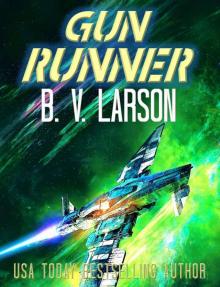 Gun Runner
Gun Runner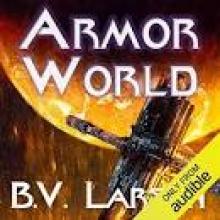 Armor World
Armor World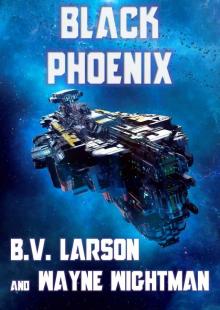 Black Phoenix
Black Phoenix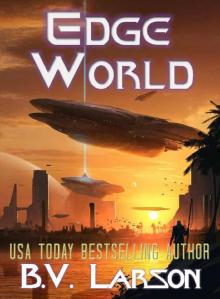 Edge World (Undying Mercenaries Series Book 14)
Edge World (Undying Mercenaries Series Book 14)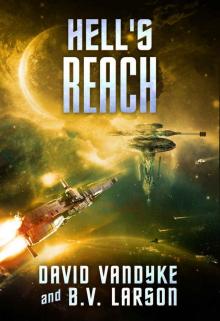 Hell's Reach (Galactic Liberation Series Book 6)
Hell's Reach (Galactic Liberation Series Book 6)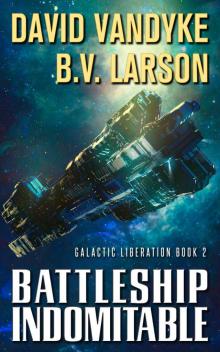 Battleship Indomitable
Battleship Indomitable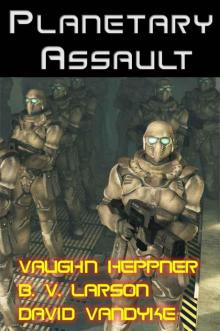 Planetary Assault (Star Force Series)
Planetary Assault (Star Force Series)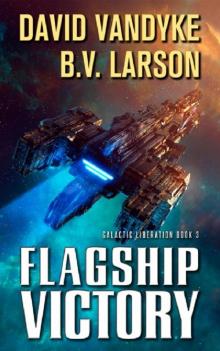 Flagship Victory (Galactic Liberation Book 3)
Flagship Victory (Galactic Liberation Book 3)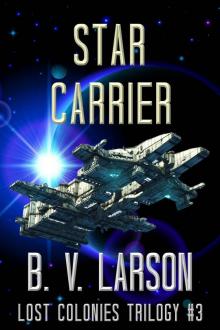 Star Carrier (Lost Colonies Trilogy Book 3)
Star Carrier (Lost Colonies Trilogy Book 3)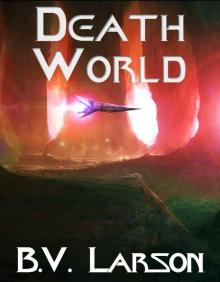 Death World (Undying Mercenaries Series Book 5)
Death World (Undying Mercenaries Series Book 5)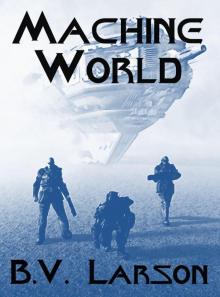 Machine World (Undying Mercenaries Book 4)
Machine World (Undying Mercenaries Book 4) Mech 2
Mech 2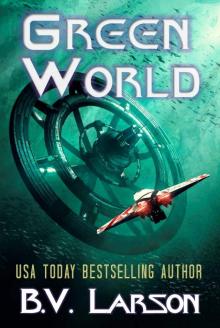 Green World
Green World The Swords of Corium
The Swords of Corium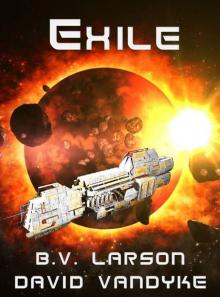 Star Force 11: Exile
Star Force 11: Exile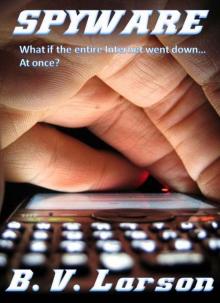 SPYWARE BOOK
SPYWARE BOOK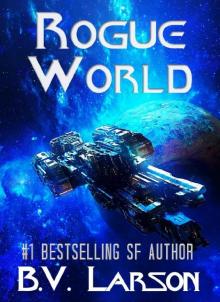 Rogue World (Undying Mercenaries Series Book 7)
Rogue World (Undying Mercenaries Series Book 7)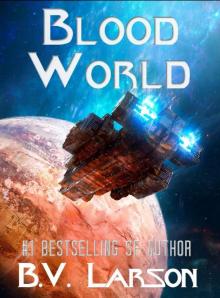 Blood World (Undying Mercenaries Series Book 8)
Blood World (Undying Mercenaries Series Book 8)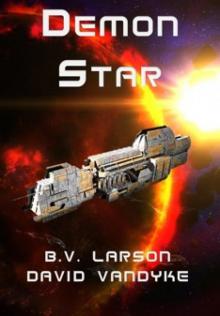 Demon Star
Demon Star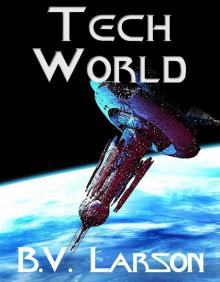 Tech World (Undying Mercenaries Series)
Tech World (Undying Mercenaries Series)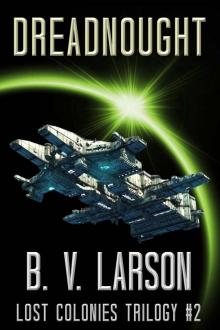 Dreadnought (Lost Colonies Trilogy Book 2)
Dreadnought (Lost Colonies Trilogy Book 2) Shifting
Shifting To Dream with the Dragons (Hyborean Dragons)
To Dream with the Dragons (Hyborean Dragons)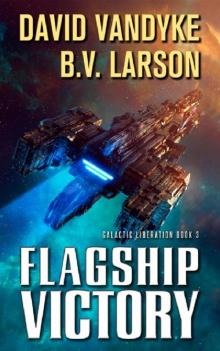 Flagship Victory
Flagship Victory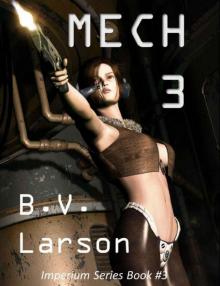 Mech 3: The Empress
Mech 3: The Empress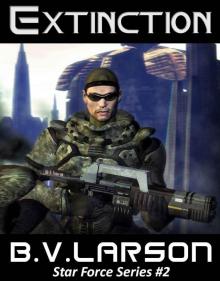 Extinction Ebook Full
Extinction Ebook Full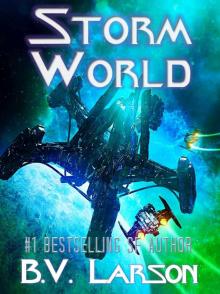 Storm World (Undying Mercenaries Series Book 10)
Storm World (Undying Mercenaries Series Book 10)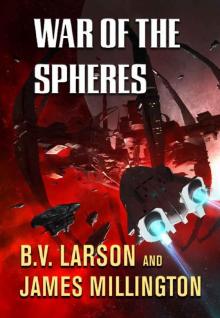 War of the Spheres
War of the Spheres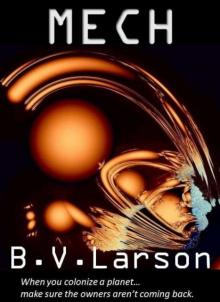 MECH EBOOK
MECH EBOOK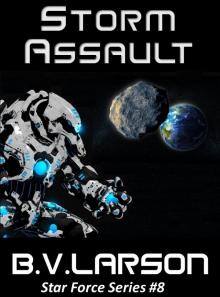 Storm Assault (Star Force Series)
Storm Assault (Star Force Series)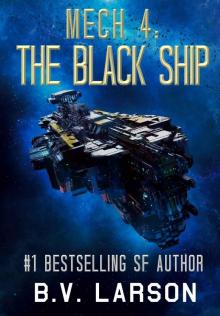 Mech 4: The Black Ship (Imperium Series Book 5)
Mech 4: The Black Ship (Imperium Series Book 5) Technomancer
Technomancer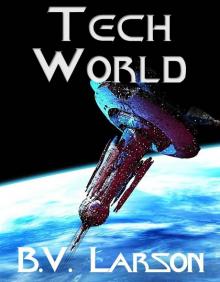 Tech World
Tech World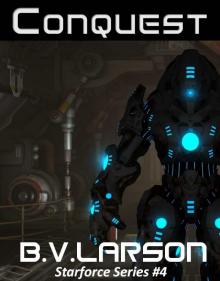 Conquest (Star Force Series)
Conquest (Star Force Series)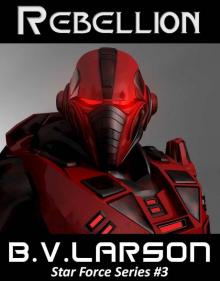 Rebellion sf-3
Rebellion sf-3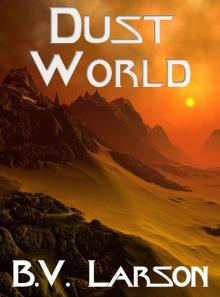 Dust World
Dust World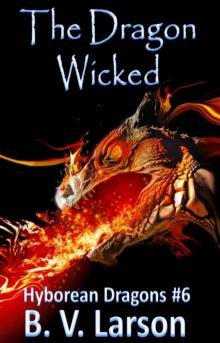 The Dragon Wicked
The Dragon Wicked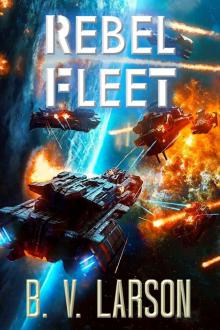 Rebel Fleet
Rebel Fleet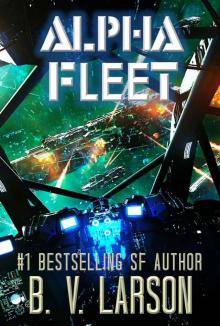 Alpha Fleet (Rebel Fleet Series Book 3)
Alpha Fleet (Rebel Fleet Series Book 3)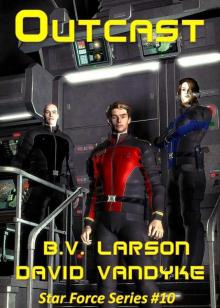 Star Force 10: Outcast
Star Force 10: Outcast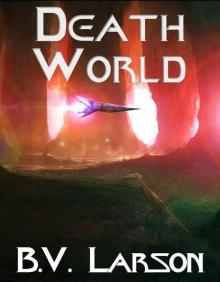 Death World
Death World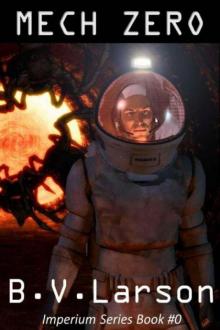 Mech Zero: The Dominant
Mech Zero: The Dominant The Sorcerer's Bane
The Sorcerer's Bane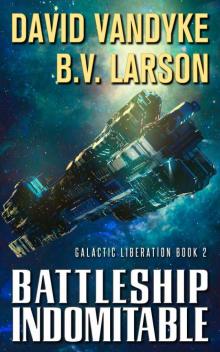 Battleship Indomitable (Galactic Liberation Book 2)
Battleship Indomitable (Galactic Liberation Book 2) Haven Magic
Haven Magic Amber Magic (Haven Series #1)
Amber Magic (Haven Series #1)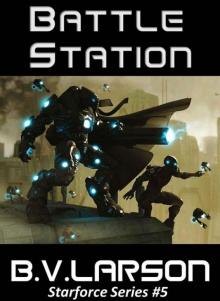 Battle Station sf-5
Battle Station sf-5 Of Shadows and Dragons
Of Shadows and Dragons Starfire
Starfire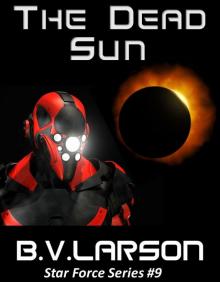 The Dead Sun (Star Force Series)
The Dead Sun (Star Force Series)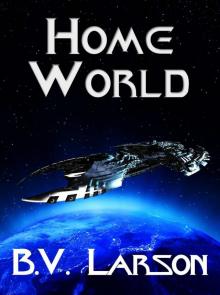 Home World (Undying Mercenaries Series Book 6)
Home World (Undying Mercenaries Series Book 6)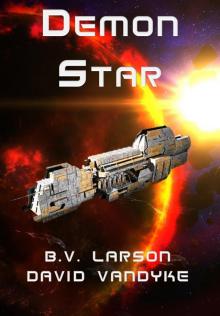 Star Force 12 Demon Star
Star Force 12 Demon Star Dream Magic
Dream Magic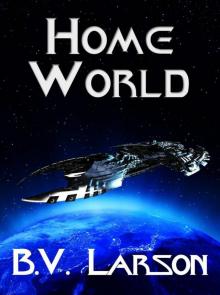 Home World
Home World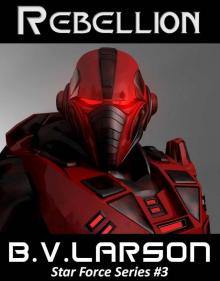 Rebellion Ebook Full
Rebellion Ebook Full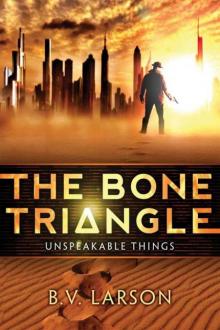 The Bone Triangle
The Bone Triangle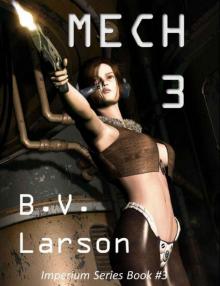 The Empress i-3
The Empress i-3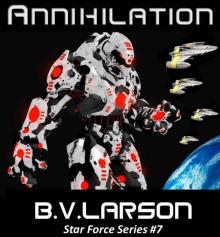 Annihilation (Star Force Series)
Annihilation (Star Force Series)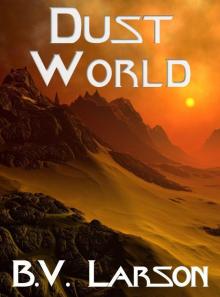 Undying Mercenaries 2: Dust World
Undying Mercenaries 2: Dust World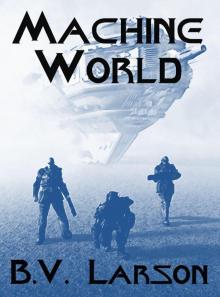 Machine World
Machine World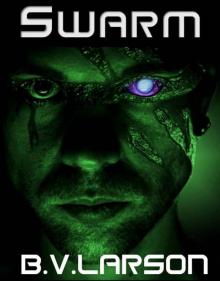 Swarm
Swarm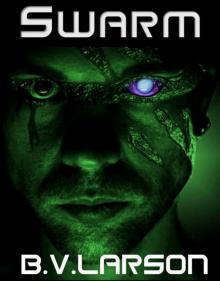 Swarm sf-1
Swarm sf-1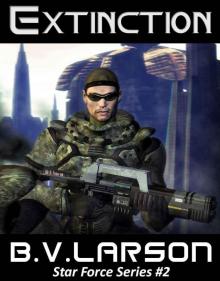 Extinction sf-2
Extinction sf-2 Amber Magic h-1
Amber Magic h-1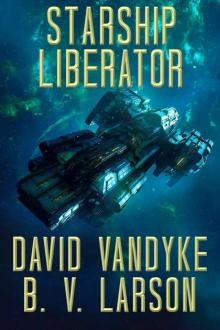 Starship Liberator
Starship Liberator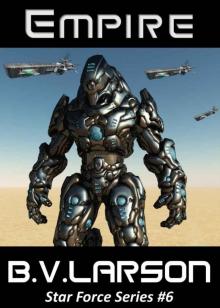 Empire Ebook Full
Empire Ebook Full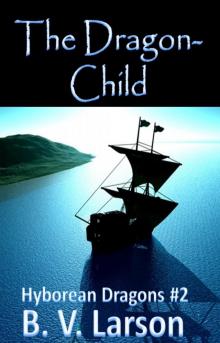 The Dragon-Child
The Dragon-Child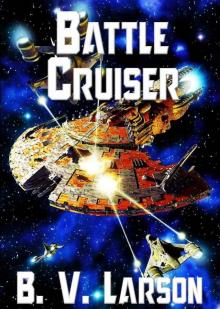 Battle Cruiser
Battle Cruiser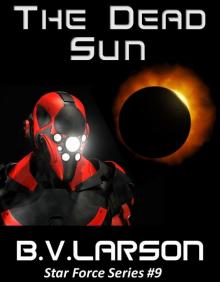 The Dead Sun
The Dead Sun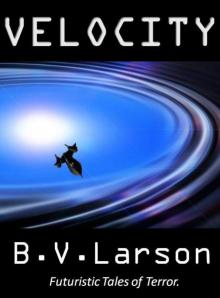 Velocity
Velocity Creatures
Creatures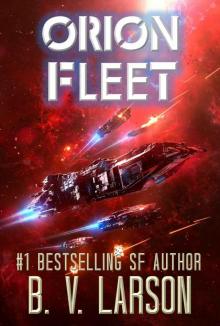 Orion Fleet (Rebel Fleet Series Book 2)
Orion Fleet (Rebel Fleet Series Book 2)